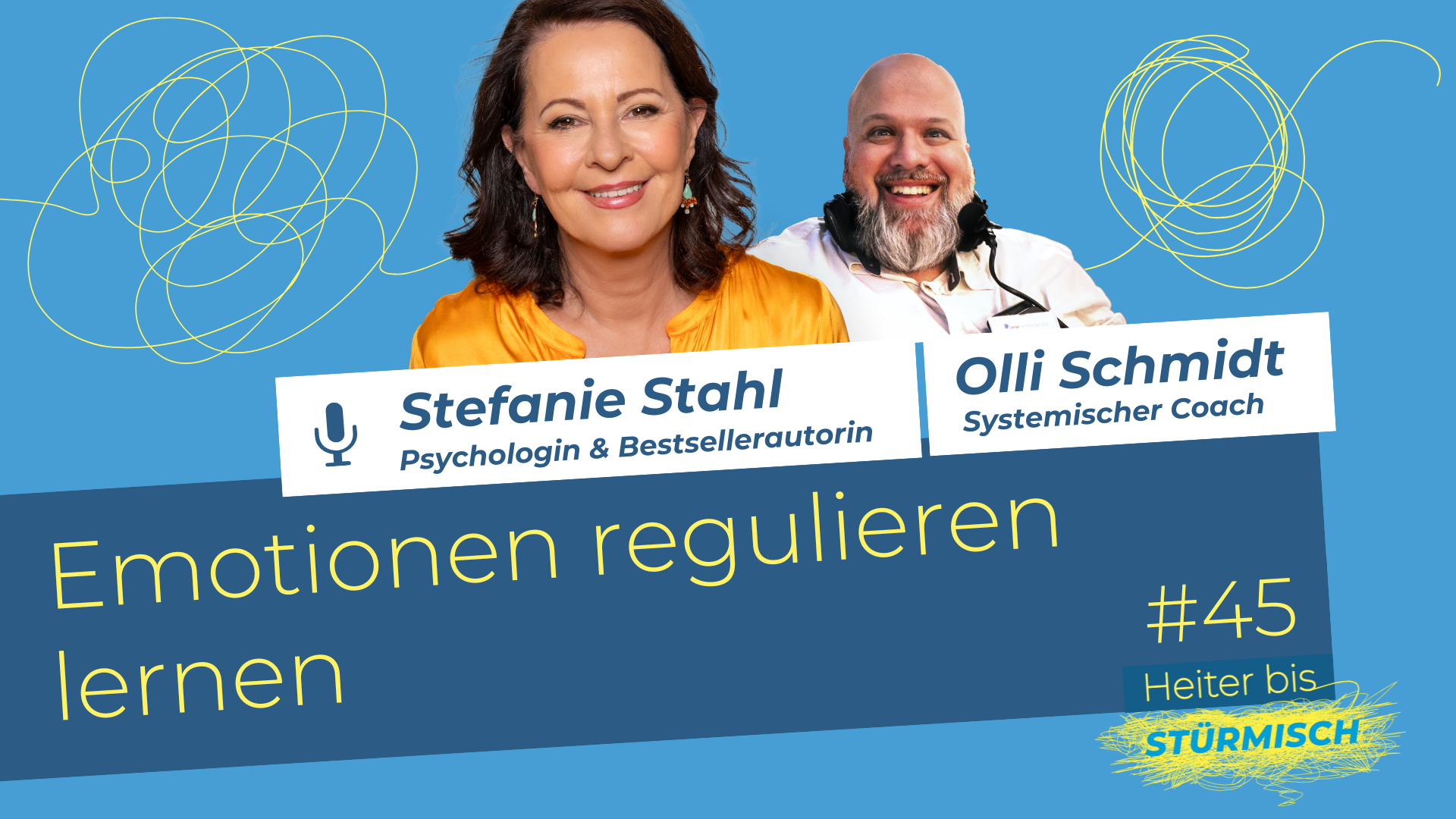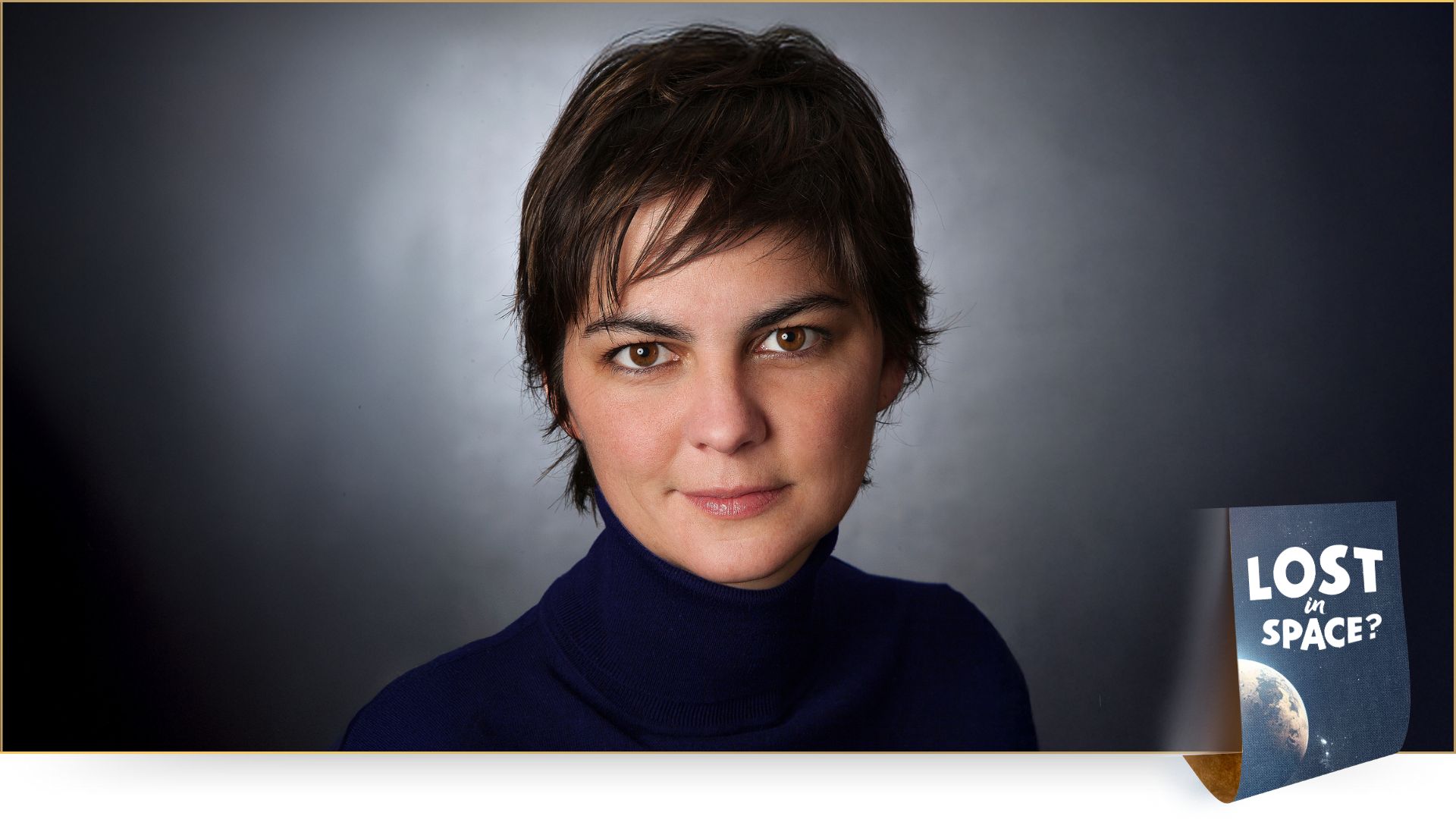
Episode 45: Learning to understand and regulate emotions
Why do we sometimes overreact even though the situation doesn't really warrant it? Why do some people suppress their feelings? In this episode of "Heiter bis stürmisch" (Cheerful to Stormy), Olli talks to Germany's most famous psychotherapist, Stefanie Stahl, about emotion regulation.
How can we learn to control our emotions better? How can looking back at the past and our "inner child" help us understand our feelings?
That's what this episode is about:
- Why we are not helplessly at the mercy of our emotions
- Why we overreact in some situations
- How childhood experiences shape our emotions
- What happens when we suppress feelings
- Practical tips for immediate assistance in acute situations
This letscast.fm content can only be loaded if you accept the privacy policy of letscast.fm.
To the data protection settings "Excerpt from the podcast interview with Stefanie Stahl:
Ms. Stahl, are we at the mercy of our emotions?
Stefanie Stahl: There are different approaches. One is prevention: I prepare myself mentally for situations that I know will trigger me. For example, a family celebration. Another is to reflect on old triggers that are related to your own past—I call this the shadow child. And the third option is, once the emotion is already there, to ask yourself: How can I get out of this?
How can I tell if I have problems regulating my emotions?
When I repeatedly overreact emotionally —with anger, hurt feelings, jealousy. Often you only notice this in hindsight. Or when you feel too little. There are people who function very well but have little access to their feelings. Both extremes can be problematic: too strong feelings or too little feeling.
In your book, you talk about the "inner child." What do you mean by that?
I will illustrate this with a specific example, which is also a key example in my book "Das Kind in dir muss Heimat finden" (The Child Within You Must Find a Home): Michael, who grew up with three siblings. His parents were self-employed and ran a bakery, and they were really overwhelmed and unable to give all their children the attention they needed. As a result, little Michael often felt neglected. Young children don't feel and think that their mom and dad are completely overwhelmed. They feel and think: I am the problem. I am a burden. I am not important.
And that is how inner belief systems come about. As an adult, Michael, for example, is triggered when he finds himself in situations where he feels overlooked and not properly noticed— for example, when his girlfriend is a few minutes late for a date. Then he feels invisible again, gets angry, and an argument ensues. These old patterns run automatically, without freedom of choice.
So the anger masks the actual hurt?
When Michael is aware of his conditioning, he can catch himself, switch to his adult self, and calm himself down. Because it's not about what happens, but how I interpret it.
Where can I start to make a difference?
The most important step is to look back at the past: How were feelings dealt with in my parents' home? What beliefs did I develop? For example: I'm not good enough, my needs don't matter. These influences determine how we perceive ourselves and the world. The good news is: You can change them.
Many feel guilty towards their parents.
Yes, this is related to childlike loyalty. However, these influences do not say anything about one's own worth, but rather about the excessive demands placed on parents. A healthy separation is important in order to go one's own way.
Cheerful to stormy - the everyday podcast with Olli Schmidt
Welcome to "Heiter bis stürmisch" (Cheerful to Stormy) – the everyday podcast. Whether you're on top of the world or feeling down in the dumps, life has its ups and downs. That's exactly what we're here to talk about: everyday crises such as arguments with your partner, parenting issues, work overload, uncertainties, and fears. We talk to experts and give you practical tips to help you deal with crises and challenges more effectively.
Our podcast is available on all popular podcast platforms (Spotify, Apple Music, Audible, etc.)! Questions, suggestions, criticism, requests? Feel free to write to us at:familienservice




